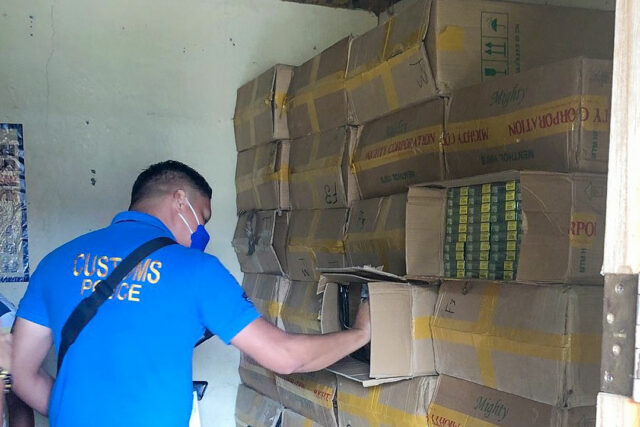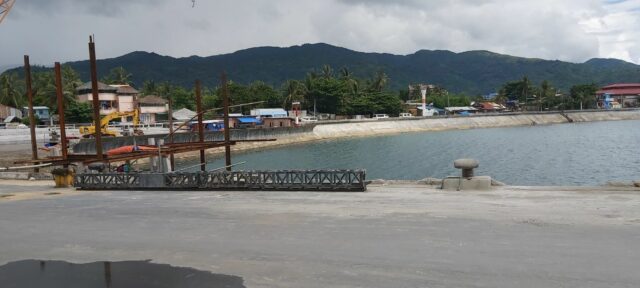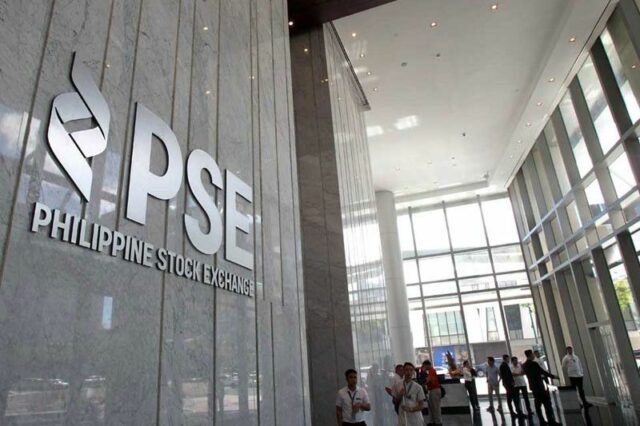As the holiday season draws near, it’s a good time to examine the tax exemptions and privileges available to businesses in real estate under the Tax Code. These statutory benefits, specifically designed to support the real es-tate industry, are primarily in the form of value-added tax (VAT) exemptions, income tax holidays, and other related fiscal incentives. For real estate transactions, understanding the distinction between ordinary and capital assets is critical, as it determines whether VAT applies. The Tax Code, under Section 109, outlines several key exemptions for real property transactions, which we will explore in detail.
VAT EXEMPTION ON THE SALE OF CAPITAL ASSETS
Under Section 109(P) of the Tax Code, the sale of real properties not primarily held for sale or lease in the ordinary course of trade or business is exempt from VAT. This applies to real properties classified as capital assets — those that are not intended for sale or use in a business.
For a real property to qualify as a capital asset, it must not be part of the seller’s regular business activities, such as trading or leasing real estate. The classification of the real property as a capital or ordinary asset depends on the nature of the taxpayer’s business and whether such property is used in trade or business of the taxpayer. For example, if the seller is a real estate dealer, developer, or lessor, the property is classified as an ordinary asset, and the sale of such is typically subject to VAT at 12%. However, if the seller is not engaged in the real estate business, such as a non-dealer company that holds a property for investment, the sale of such property may qualify for VAT exemption.
The Bureau of Internal Revenue (BIR) has provided further clarity on this point through Revenue Regulations (RR) No. 7-2003, which allows the reclassification of properties from ordinary to capital assets if the property has been idle for more than two years. A recent BIR ruling in 2023 demonstrates this principle, where a non-real estate business was able to reclassify its property as a capital asset and exempt it from VAT after showing that the property had not been used for trade or business for over two years. Specifically, the taxpayer presented the following proof.
i. The taxpayer is not engaged in real estate business as shown in its Articles of Incorporation.
ii. Its Audited Financial Statement (AFS) shows that the subject properties were neither included in its inventory held nor owned primarily for sale in the ordinary course of its trade or business from the time of their acquisition. Also, the same has not been subjected to the allowance for depreciation provided for under Sec. 34(F) of the Tax Code of 1997, as amended. In support thereof, the subject properties were certified as idle by the Office of the Punong Barangay where it is located and have been found to have no improvements, as confirmed in the certification issued by the Office of the Assessor.
iii. The AFS showed no revenue from any of the subject properties held from the time that they were acquired. The subject properties were never used for lease/rent or being offered for lease/or rent.
With the foregoing facts, the BIR opined that the sale of the properties is subject to capital gains tax and documentary stamp tax but not subject to VAT and creditable withholding tax.
VAT EXEMPTION ON LOW-COST AND SOCIALIZED HOUSING
The sale of real properties used for low-cost and socialized housing enjoys VAT exemption under the provisions of the Urban Development and Housing Act (RA 7279). As defined by the law and supported by Revenue Regulations (RR) No. 13-2018, low-cost housing refers to projects designed for low-income families, while socialized housing covers housing for the underprivileged and homeless citizens.
Under the Joint Memorandum Circular No. 2024-001, both the Department of Human Settlements and Urban Development (DHSUD) and the National Economic and Development Authority (NEDA) have set specific price ceilings for socialized and low-cost housing projects. These ceilings range from P300,000 for socialized housing to up to P3 million for low-cost housing units. Developers of these housing projects are entitled to VAT exemption, and the sale of property to qualified beneficiaries is also exempt from income tax and creditable withholding tax.
INCOME TAX HOLIDAY FOR SOCIALIZED HOUSING DEVELOPERS
Developers of socialized and low-cost housing can avail of the Income Tax Holiday (ITH) by registering with the Board of Investments (BoI). In 2023, the BoI amended the 2022 Strategic Investment Priority Plan (SIPP) to include low-cost housing projects with a selling price of up to P3 million. This amendment opens the door for more developers to benefit from ITH, which are granted for a period starting from the project’s Start of Commercial Operations (SCO).
Under the CREATE MORE Act (RA No. 12066), domestic market enterprises duly registered with the BoI can avail of the ITH for a period of four to seven years, followed by the Enhanced Deduction Regime (EDR) for 10 years, or EDR for a maximum period of 14 to 17 years, depending on location and industry priorities.
The SIPP also requires that at least 20% of the project’s area and floor space be dedicated to socialized housing. Once a project is registered with the BoI, it may be exempt from corporate income tax during the ITH period, and the developer is also exempt from creditable withholding tax.
Upon BoI registration, the terms of entitlement shall be specified in the registration agreement and/or standard terms and conditions. For income tax purposes, the ITH commences following the SCO. As the real estate developer is not subject to income tax, it follows that the creditable withholding tax (CWT) is inapplicable to their income. In this case, a BIR ruling shall be applied to confirm the exemption from creditable withholding tax during the ITH period pursuant to the provisions under RMO No. 9-2014 and RR No. 2-98, as amended. Thereafter, the duly issued affirmative ruling or certificate of tax exemption (CTE) shall then be issued to the buyers or clients of the real estate devel-oper as proof of its exemption from CWT.
VAT EXEMPTION ON RESIDENTIAL PROPERTIES SOLD FOR P3.6 MILLION OR LESS
As of Jan. 1, 2024, a new VAT exemption applies to the sale of residential units — such as house and lot packages, condominium units, and other residential dwellings — valued at P3.6 million or below, as outlined in RR No. 1-2024. To qualify for this exemption, the property must be used for residential purposes. Importantly, if multiple adjacent properties are sold to the same buyer with the intent to be used as a single residential area, they will still be con-sidered VAT-exempt as long as the aggregate value does not exceed P3.6 million.
However, this exemption does not extend to parking lots, even if sold together with a condominium unit, as the sale of parking spaces is considered a separate transaction and remains subject to VAT.
VAT EXEMPTION ON RESIDENTIAL LEASE AGREEMENTS
For real estate lessors, the lease of residential units with a monthly rental of P15,000 or less is VAT-exempt. This includes apartments, houses, dormitories, and other similar residential properties. Notably, the exemption applies even if the total annual rental payments exceed the VAT threshold of P3 million, as long as the individual monthly rent does not exceed P15,000.
“Residential Units” shall also include apartments, houses, buildings, parts, or units thereof used for home industries, retail stores, or other business purposes if the owner and his family actually live there and use them principally for dwelling purposes.
Essentially, this exemption applies if the following conditions apply: a lease transaction involving residential units and the monthly lease not exceeding P15,000.
The lessor must issue a non-VAT invoice for such leases, ensuring that they do not charge VAT to their tenants. This exemption provides relief for lessors of low-cost housing and other affordable residential units.
KEY TAKEAWAYS
Tax exemptions and incentives are critical tools for fostering growth in the real estate sector, particularly for developers focused on low-cost and socialized housing. However, real estate businesses must be diligent in ensuring that they meet the specific requirements set forth by the tax authorities and Investment Promotion Agency.
It is important to note that tax exemptions are strictly construed against the taxpayer. Businesses must demonstrate their eligibility for these exemptions with clear, substantiated evidence. Exemptions are not automatically granted, and taxpayers bear the burden of proof.
The BIR’s recent push for clearer guidelines and regular issuance of clarificatory circulars is a positive step, helping businesses navigate the complexities of tax laws. As the year draws to a close, it is an opportune time for real estate businesses to review their tax compliance and take advantage of the exemptions available under the law, while ensuring they are fully compliant with the relevant regulations.
In this season of giving, many businesses in the real estate sector continue to benefit from these incentives while contributing to the economy and society. Likewise, it is hoped that the BIR continues its efforts to simplify pro-cesses and support businesses in achieving sustainable growth.
Let’s Talk Tax is a weekly newspaper column of P&A Grant Thornton that aims to keep the public informed of various developments in taxation. This article is not intended to be a substitute for competent professional advice.
Kim M. Aranas is a director from the Tax Advisory & Compliance division of P&A Grant Thornton, the Philippine member firm of Grant Thornton International Ltd.
pagrantthornton@ph.gt.com











